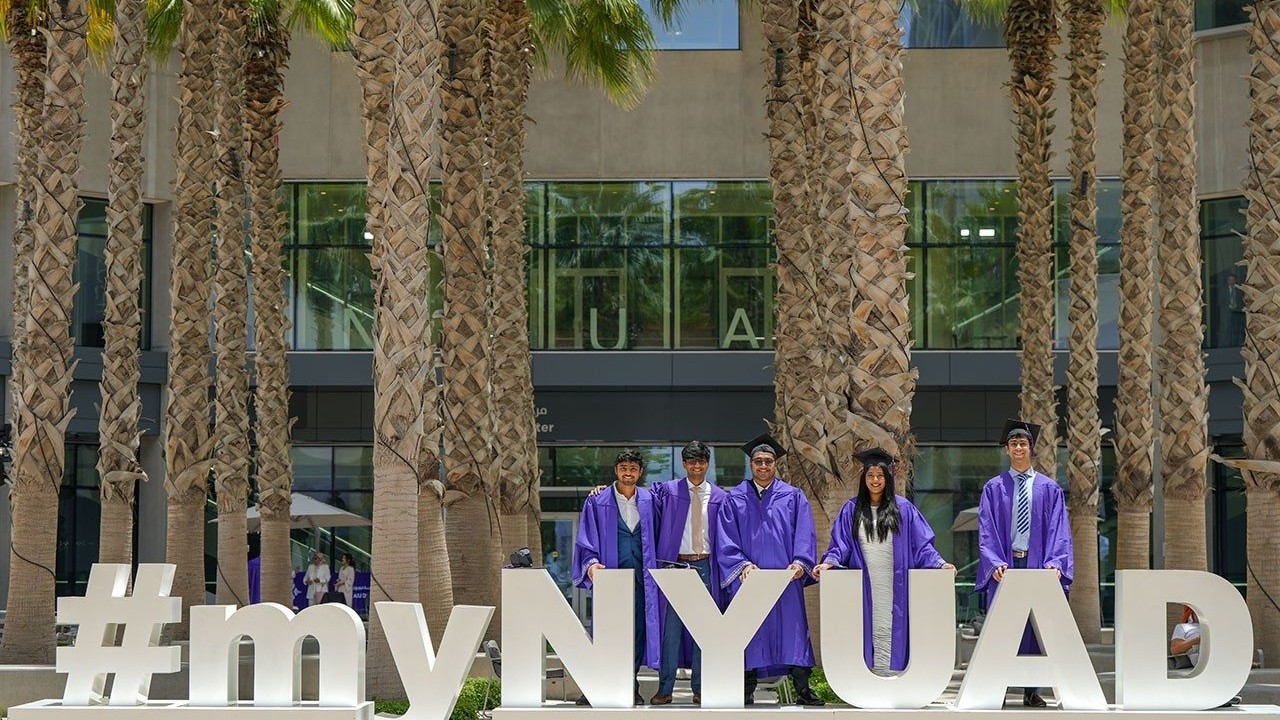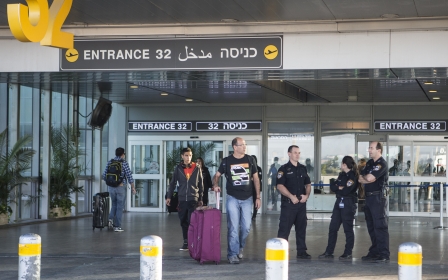NYU Abu Dhabi suppressing Palestine solidarity, students and faculty say

New York University Abu Dhabi is under fire for suppressing students and faculty from expressing solidarity with Palestine.
A press release put out on Thursday by the American Association of University Professors and shared by NYU Faculty & Staff for Justice in Palestine (NYU FSJP) reveals that several complaints have emerged from both faculty and students at NYUAD in the United Arab Emirates.
"President Linda Mills’ administration has silenced faculty and students on the NYUAD campus. Expressions of solidarity with Palestine have led to extreme sanctions by the University and political repression," the press release reads.
The acts listed include staff, faculty members and students, especially "nationals of non-Western countries", being taken into custody and interrogated at government security offices, "based on surveillance of their personal associations, private email exchanges and private social media posts".
A staff member and a graduate student have reportedly been deported, according to the AAUP.
New MEE newsletter: Jerusalem Dispatch
Sign up to get the latest insights and analysis on Israel-Palestine, alongside Turkey Unpacked and other MEE newsletters
The AAUP NYU chapter initially received the complaints. The AAUP is an organisation of professors and other academics consisting of 500 local campus chapters and 39 state organisations in the US.
"NYUAD leadership has opted for the suppression of any form of engagement with the topic of Palestine on campus, restricting actions such as organizing pro-Palestine vigils and teach-ins, hanging banners, posting to social media, and wearing keffiyehs," the press release stated.
The latest incident took place at this year's NYUAD graduation ceremony on 22 May, which was reportedly heavily policed. "One PhD student who expressed his support for Palestine on stage was detained for a week and deported," the press release says.
The statement also stresses, that the defence of academic freedom on campus without the risk of retaliation is "particularly important for a campus located in the Middle East, where the genocide in Gaza is a quotidian reality which affects the lives and families of many members of the community".
The Abu Dhabi branch of NYU is considered to be one of the most selective and diverse universities in the world. Admission at the school is need-blind, meaning that an applicant's ability to pay for their education is not a determining factor in selection decisions and all students are automatically considered for merit-based support.
The UAE was the first country to sign the Abraham Accords, which normalised relations between Israel and the UAE, making the Gulf nation the first Arab nation to normalise relations with Israel since 1994.
Between freedom and speech and UAE's law
While each NYU branch abroad forms a part of the New York-based institution, the schools are still subject to the vagaries of local politics.
The "satellite campuses" are thus caught in a delicate balancing act between respecting its institutional mission, including the protection of freedom of speech, and adhering to the laws of the country, which in Abu Dhabi's case are strict when it comes to curtailing public discourse.
"Freedom of expression only exists inside the classroom, as soon as faculty steps out of the classroom, those protections are drastically reduced," a faculty member at NYUAD who did not want to be named told Middle East Eye.
Before 7 October, the NYUAD campus as a whole was a "singularly unique bubble of academic freedom in the UAE", where students and faculty could organise academic events on any event, the faculty member recalls.
'We’re seeing those lines of academic freedom receding to more narrowly cover the classroom rather than campus as a whole'
- NYUAD faculty member
"However, space for students and faculty to organise outside the classroom to meet and peacefully discuss issues regarding Israel-Palestine have been drastically curtailed."
NYUAD is under new leadership with Mariet Westermann, who has been the university's vice chancellor since 2019. The faculty member at NYUAD says the new chancellor has proven an unwillingness to show "a steely backbone to defend the academic freedom that NYUAD does have on campus".
This became especially apparent after 7 October when the war broke out, the faculty member says, when the UAE's Ministry of Education issued a directive, advising schools to show discretion regarding events related to Palestine.
"Now, because of the NYUAD administration’s overly self-censoring interpretations of UAE government directives, we’re seeing those lines of academic freedom receding to more narrowly cover the classroom rather than campus as a whole", the faculty member said.
NYU's home base in New York should be aware of this, the faculty member believes, to "intelligently maximise space for on-campus debate and academic inquiry rather than preemptively shutting down these spaces to conform with perceived government pressures."
NYU's president Linda Mills was also present at the graduation ceremony and reportedly "remained silent" on the issues faced by NYUAD community members at the hand of the government, the press release says.
Middle East Eye delivers independent and unrivalled coverage and analysis of the Middle East, North Africa and beyond. To learn more about republishing this content and the associated fees, please fill out this form. More about MEE can be found here.




